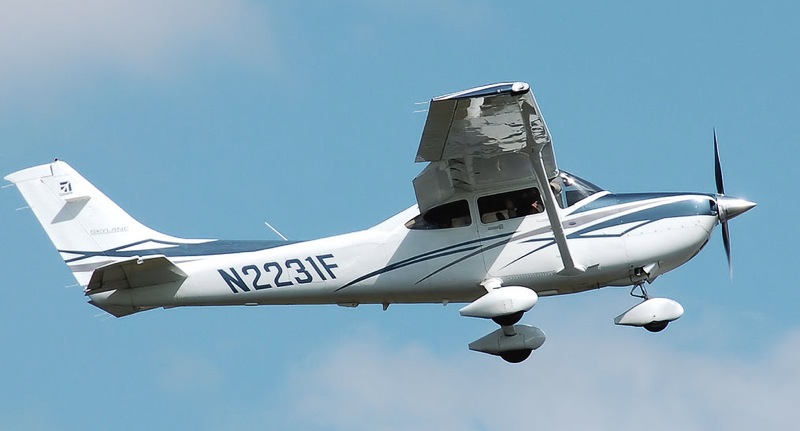Sydney to London on the Plastic Fantastic powered flight


--
Most of us derive some small sense of "doing our part" whenever we drop our used plastic bottles in the recycle bin. If the system works, the bottles eventually reincarnate as fresh new plastic containers, and we've chipped away at the world's carbon footprint and spared the environment from a smidgin more landfill.
But pilot Jeremy Rowsell isn't like most of us. He's taking the idea of recycling plastic to a whole new height. Literally.
Rowsell believes that used plastic can find new life as aviation fuel. To prove the point, he plans to fly a single engine Cessna 182 propeller plane from Sydney to London powered by melted plastic, according to the website Business Green.
"We can't stop flying, but how can we do that and do it sustainably?" Rowsell asks in the story. "Our objective is to prove that this synthetic fuel made from plastic waste is viable for a number of practical solutions and by doing so replace the need to use fossil fuels from conventional sources."
The pioneering 6-day, 10,000-mile adventure this November will include stops in Darwin, Christmas Island, Sri Lanka, Jordan and Malta. At each touch down, Rowsell will top up his tank with a trial fuel that Irish company Cynar Plc makes by melting plastic in an oxygen-free environment - a process known as pyrolysis.
Cynar claims that the technique spews no emissions, and the petroleum distillate-like fuel it creates is cleaner and higher quality than the diesel that normally would normally power the Cessna. Cynar has tested the fuel in vehicles, but Rowsell's journey will mark the first use in an aircraft. He'll fly at 5,000 feet for up to 13 hours a day, Business Green reports.
Plenty of flights have taken off using biofuels. But according to Cynar, Rowsell's will be the first flight powered by repurposed plastic. And while most biofuel flights use a mix with conventional fuel, Rowsell will use nothing but the "plastic" alternative. He'll burn about 4000 liters (1057 gallons), requiring about 5 tons of plastic waste.
Cynar CEO tells Business Green that there is plenty of plastic waste to power low altitude flights in the future.
"There's 26 million tonnes [of plastics] in the US going into landfill each year and 15 million in Europe," he says. "I think [the fuel] can be a viable alternative if the industry adopts diesel-type engines. It'll need testing and trials, but for a diesel engine not going beyond 8,000 feet, it should be fine."
If you're worried about Rowsell's safety, take some comfort in knowing that the aviation maverick completed survival training for an earlier single engine flight (using standard fuel) across the Pacific. Watch the video below from Australian escape training company Red Alert to see him learn how to cope should his aircraft plunge to the sea. My favorite bit of advice from his coaches: "When you ditch, just remain really calm." Let's hope that the challenge of saving the planet from the wreck of fossil fuels is just as simple!
Photos: Cessna from Arpingstone via Wikimedia. Jeremy Rowsell grabbed from Red Alert YouTube survival training video.
Note: This story corrects an earlier version. The Cessna will drink 4000 liters of fuels (1057 gallons), not 400 liters (106 gallons) as Business Green originally reported and SmartPlanet repeated. (Sounded low in the first place! Still, nice job by Business Green in spotting this adventure). Updated around 3:25 a.m. PDT, Aug. 29.
More plastic fuels on SmartPlanet:
- In the Philippines, turning plastic waste into fuel
- At Crane and Co., a greener greenback
- Bye bye imported oil? New tech turns junk plastics into fuel
Aviation biofuels on SmartPlanet:
- Friends of Earth rain on Lufthansa biofuels parade
- Biofuels fly mainstream: Lufthansa passenger flights taking off
- Airbus and Europe map jet biofuel goal
- Will the real biofuel Lindbergh please stand up?
- Honeywell: The Lindbergh of aviation biofuels
This post was originally published on Smartplanet.com